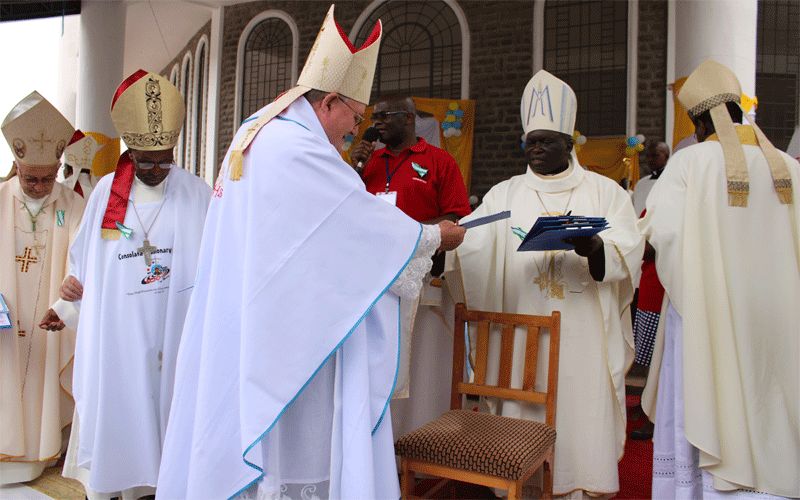Seeking to address allegations that some politicians have been providing ill-gotten money to Churches during fundraising events, the Bishops declared a shift from cash to electronic transactions in order to have details of the donor.
“Contributions to fundraisers in our Churches will be done by mobile money transfer or preferably by Cheque. This will avoid the handling of large amounts of cash, and give a clear trail of the donors. We wish to move towards cashless donations,” the Bishops announced in their Saturday statement named “Subukia Pastoral Declaration on Corruption.”
Speaking to ACI Africa on the sidelines of the Subukia event, the Chairman of the Kenya Catholic Bishops Conference (KCCB), Archbishop Philip Anyolo disclosed the reason behind their decision to decline cash donations saying, “We know that when one gives, they do so with good intentions of the church, that’s okay. But now that there is the issue of corruption ... we now have put rules in place so that corruption does not find its way through the Church.”
The Bishops also pledged to be transparent about Church fundraising activities saying, “We will declare and keep open as we have tried to do so far, the lists and accounts of our projects and any fundraising initiatives in our Churches or institutions open for public scrutiny.” the statement also states.
At the same time, the prelates pledged to “keep a record of any gift to a religious leader exceeding Kshs 50,000 (USD 500),” and that “all gifts should be accompanied or acknowledged by a letter.”
In order to preserve the sanctity of the Church buildings, the Prelates declared a ban on politicking in their places of worship saying, “our Churches will not be used as political platforms or for any other motive other than for the liturgy and worship of God.”
“We shall therefore not allow any address within the Church of any non-liturgical character,” the Bishops declared and clarified, “All such addresses that may be opportune to make, will be made outside of the Church with due dignity.”
Asked about an earlier incident in which a Bishop’s public speech was interpreted as an endorsement of a political candidate, Archbishop Anthony Muheria of Nyeri told ACI Africa that the Bishop’s utterances were not in the name of the Church in Kenya.
“We do not support any individual at any time ... however, each may have their own particular support but that is not the position of the Church. The Church has always been non-partisan in political matters,” Archbishop Muheria clarified and added, “We embrace all people from all sectors and political backgrounds.”
Taking note of the tendency on the part of politicians to use occasions of Christian burials to do politics, the Bishops pleaded “that the true nature of our funerals be restored, to condole and pray for the family and honor and pray for the deceased.”








